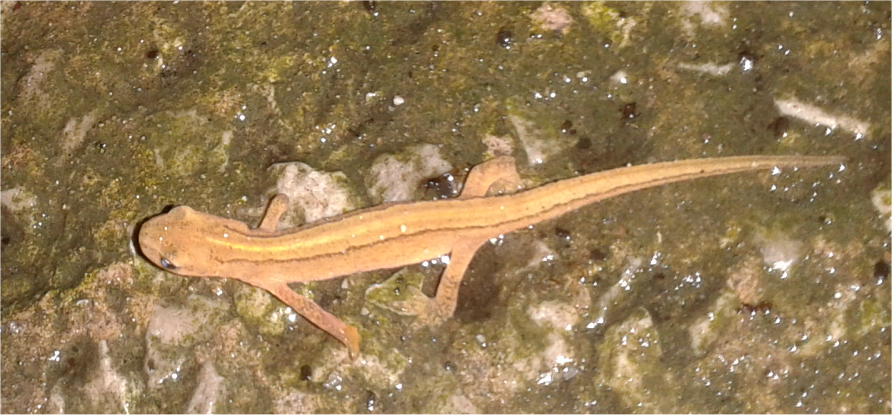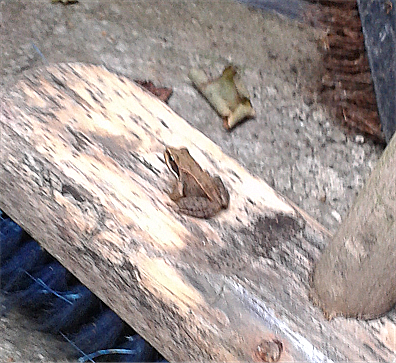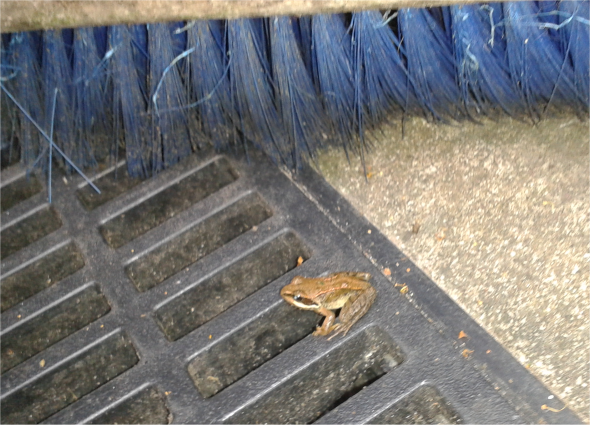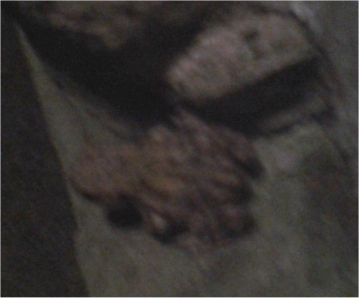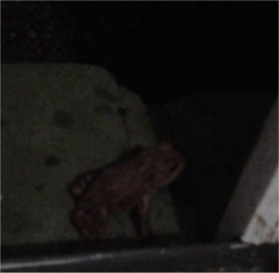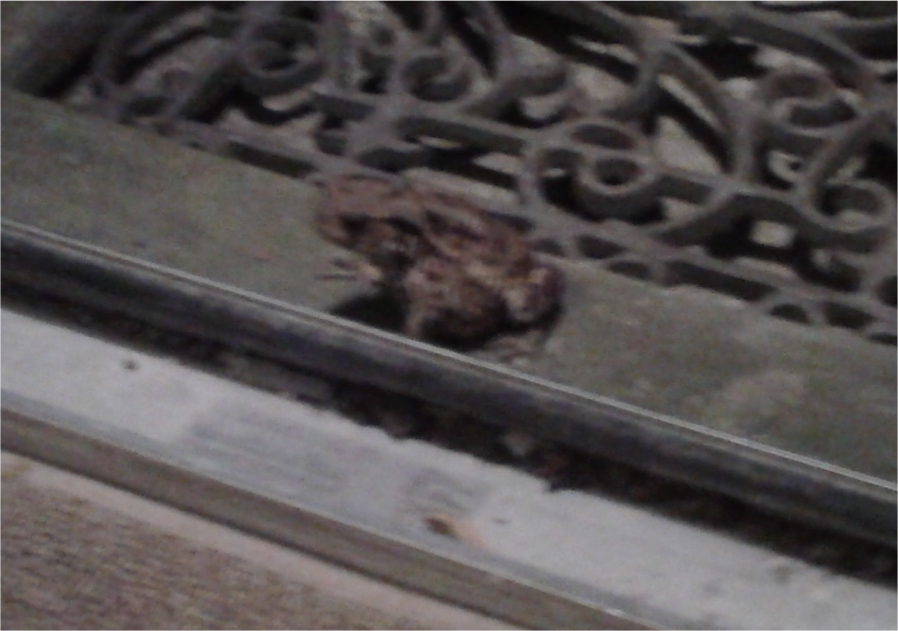I have an Intel GPU and had difficulties running older Windows applications using old 4:3 display resolutions to scale i.e. fill to screen, a solution is to set the application to run in windowed mode in its own settings (get this to definitely run windowed first), then set the GPU settings to the resolution of the application e.g. 1024 768 then set panel fit to scale in the GPU settings or right click desktop > graphics options for Intel GPU, the application when run will fill and scale the available desktop in a kind of windowed mode, but will often fill to appear to be full screen.
Author Archives: Paul Catherall
Dissertation on food poverty and food banks
My wife, Sharon Catherall, who co-authored an article for the ISC journal with John Vincent and editorial contribution from myself – on food poverty and libraries has just been awarded her MPH masters degree, completing her dissertation on food poverty. The dissertation built in part on an earlier article in the journal.
I’m hoping Sharon takes this area forward and contributes to writing within forums such as the ISC collective again in the near future, Sharon also had a recommendation to publish the work.
VB audio virtual cable for virtual stereo mix
This solution is useful to restore the deprecated stereo mix from modern Windows machines –
Install this small application VB Audio http://vb-audio.pagesperso-orange.fr/Cable/index.htm
In Control Panel, go to the Playback tab and make the “Cable Input” virtual device the default audio device.
In order to hear audio through the device on normal stereo output, through the audio jack etc. right click Cable Input under the Recording tab (check this is also set to default), then go to the Listen tab, make sure “Listen to this device” is checked, set the playback to a valid speakers on the PC.
The above can now be used to record audio playback from the maching, e.g. in Audacity make sure the ‘Proterties’ > ‘Devices’ area is set so ‘Playback’ and ‘Recording’ are both shown as ‘Cable Input’.
The above method also allows for listening to audio after recording.
Archipelago MUD old code instructions
For my project restoring Archipelago as it was in about 1997 see this page for the latest files.
Archipelago was a an excellent MUD application based on CIRCLEMUD. The source code is available to mess around with, the only successor to Archipelago online today is Tempora Heroica http://www.ibiblio.org/th
The details below, showing how to compile the publicly released, heavily cut down version 1.1 dated 1996 is based partly on instructions at http://www.ibiblio.org/TH/codefaq.html
Note – You should the below is probably OK just to learn how to compile and get a feel for Archipelago however I’ve noted many bugs, broken zone resets and other causes of segmentation faults in 1.1, this is because a lot of the code refers to objects etc. which are not in the cut down version, the code is also heavily dated and my restored version has several updates to the src files which allow it to compile on the latest gcc versions.
Before reading these instructions I recommend you learn the most basic UNIX commands to allow you to move up and down the file structure and perform basic file operations (see list of Unix commands at end of this guide), you can do this alternatively in Windows, but beware of expanding archives in Windows or native Windows software such as WinZip as this will introduce odd behaviour into the expanded files.
1.
Download and install Cygwin http://www.cygwin.com/
In Cygwin when you install it will list only default libraries and applications, you also need to install the following: binutils, gcc, gdb, make, wget, also make sure you have installed all crypt libraries.
Personally I selected all options under base (should be selected by default anyway), devel, interpreters, libs to be on the safe side…
You can use the “view” option in Cygwin’s top-right corner to list all files or select by category.
Start Cygwin, you will see a command prompt in a terminal window, looking something like:
defualt@(your computer’s name) >
2. In Cygwin, to obtain the Archipelago files type:
wget http://www.ibiblio.org/TH/Archipelago-1.1-fixed.tar.gz
this will download the archipelago 1.1 package from the TH Web site.
3.
Expand the files by typing:
tar zxvf Archipelago-1.1-fixed.tar.gz
This uncompresses and unarchives the MUD code and related files, you will see all the files expanding and listing on screen.
4. Type:
cd Archipelago/src
This will browse up to the src folder containing the build files.
5. Type:
rm comm.c && wget http://www.ibiblio.org/TH/comm.c
Deletes the old version of comm.c and then gets a new version from the TH Web site.
NOTE 1 – to fix certain warnings and errors, you can replace the header section of the ‘makefile’ (in the SRC folder) with the following:
###################################
CC = gcc
MYFLAGS = -ggdb -pedantic -DDEBUG -Wno-int-to-pointer-cast -Wno-char-subscripts -fno-builtin-exit -fno-builtin-strcat -fno-builtin-strncat -fno-builtin-strcpy -fno-builtin-strlen -fno-builtin-calloc -Wno-overlength-strings -ansi
PROFILE =
LIBS =
OSFLAGS = -DLINUX
LIBS = -lcrypt
###################################
To get the whole replacement Makefile instead visit
http://draigweb.co.uk/archipelago/Makefile
or within Cygwin browse to the src folder (if at the root of the Archipelago folder type CD src) and type –
rm Makefile && wget http://draigweb.co.uk/archipelago/Makefile
This will delete the old Makefile and download my suggested version.
NOTE 2 – the following fixes may also be needed in Cygwin –
Some c files (In the Src folder) will need the following adding to the list of includes, I would suggest just adding to all the c files as it does no harm:
#include “crypt.h”
NOTE 3 – you should add this at the top of the list of includes in interpreter.c (In the Src folder):
#define __INTERPRETER_C__
NOTE 4 – there are a few code updates I have done to improve archipelago, one of these is an updated act.inform1.c to show auto full room exits – these added autoexits are not optional, they always show – but you can still use Brief or Compact to reduce the display format. this update also includes more colour within the MUD.
To get this download from http://draigweb.co.uk/archipelago/act.inform1.c
or within Cygwin browse to the src folder (if at the root of the Archipelago folder type CD src) and type –
rm act.inform1.c && wget http://draigweb.co.uk/archipelago/act.inform1.c
Another update is roomedit.c so you don’t have to press Shift every time you use the Q key – this fixes the uppercase-only ‘Q’ for quit when editing rooms.
To get this download from http://draigweb.co.uk/archipelago/roomedit.c
or within Cygwin browse to the src folder (if at the root of the Archipelago folder type CD src) and type –
rm roomedit.c && wget http://draigweb.co.uk/archipelago/roomedit.c
6.
Whilst still in the Src folder, to compile the MUD type:
make clean && make
This clears anything in the bin folder (where the application lives) and builds the MUD application: test1.exe
Alternatively you can do this separately as two commands, ‘make clean’ then ‘make’.
NOTE – to make all the MUD applications (not sure if these are needed) instead of typing make, type:
make all
If use use ‘make all’ you will have the ‘archipelago’ executable in the bin folder along with other executables, you can use this instead of test1 although I think they are the same executable.
7. Type
cd ..
This will go down a directory to the Archipelago folder (from where you need to run the MUD).
To run the mud from within the Archipelago folder type
./bin/test1
or
./bin/archipelago
…The former if you just make the basic test server or latter if you make all the circleMUD applications, there doesn’t seem much use for them so it may be simpler to use the test server.
8.
You can now conntect using a telnet program such as teraterm to localhost or 127.0.0.1 on port 2000
=================================
For Building instructions using the online builder tool take a look in the Text folder for building_h and see the HTML folder for guides
For a list of immort commands see Wizhelp (these are actually the old Circlemud instructions).
=================================
Cygwin/ Unx brief command reference
pwd Print working directory, shows you the path / directory name you are in
ls Shows you all files / folders in current directory
cd Return to the root (home/default directory)
cd .. Go back a directory
cd path Move up to the specified directory(s) from the current directory, eg: cd archipelago or cd archipelago/src
cp file destination Copy a file to specified path, eg: cp archi.zip new
Copies archi.zip to a folder called new from the current location.
rm file Remove the specified file in the current directory
mkdir name Make a new directory in the current directory.
rmdir name Remove a new directory in the current directory.
man keyword Search the manual for help on a keyword
./ run a file, eg: ./hello.exe
gunzip filename uncompress a tar.gz compressed archive in current directory, into a tar archive, eg : gunzip ok.tar.gz
it will convert to a tar archive in the current directory
tar xvf filename uncompress a tar archive in current directory, eg : tar xvf ok.tar
It will expand fully into the directory structure contained in the archive.
wget path download a file into current directory, eg wget http://awebsite.com/file.zip
make send ‘make’ command to a makefile in the current (usually Src) directory to compile files specified in the makefile
make all send ‘make all’ command to a makefile in the current directory to compile files specified in the makefile
Frog, Toad and Newt Pictures – sitting on our step August 2015
It is late August 2015, and we have had a lot of amphibians, toads, frogs and newts in various sizes around our small back yard recently in Rainow near Macclesfield, I think there have always been small frogs and toads, but I’ve never seen so many and I’ve also noticed a young newt (eft), the following pictures were taken around 20 to 22-08-15. The area is very damp, the house is on the side of a hill right on the edge of the moors, so we seem to get a lot of wildlife in the area.
There is an area of wooden decking on our small yard and they seem to like to sit against the dry stone wall under the decking, they also seem to like sitting on the stone doorstep, possibly to help regulate their body temperatures when it’s either warm or very cold.
The above seems to be a young newt (eft), it likes sitting on the stone step .
Small toad and eft sitting side by side on the step (blurry).
A small frog (we have a lot of them) sitting on the yard brush.
Another small frog.
The young newt on the stone step.
Blurry picture of a mid-sized toad sitting on the stone step.
A smaller toad right by the door, this one is smaller than the one above.
I think this is a larger toad who has been around over August.
Introduction to ‘Foibles, Frolics and Phantasms’
I am a native of North East Wales with both Welsh and English influences on my poetry. In the past I have written poems for UK and US small press publications and anthologies. Whilst my poems do not fit easily into particular categories or traditions, I think my poems are partly inspired by the economy and precision of the British expressionist poets such as Sylvia Plath, Francis Berry and Al Alvarez.
Some of my poems have illustrations, which often present the accompanying poem in terms of concrete images often representing symbols and metaphors.
My poems deal with a range of themes ranging from the simple to the complex and from the transcendental to the macabre, however one of the most obvious features of my poems is probably humanity’s relationship with nature as a complex entity, consider the ‘cyborg’ in ‘Chaos’, or the displaced and isolated speaker in the landscape of ‘Monoglot’.
I believe that poetry is sadly in decline outside education, and that new innovative forms of poetry are required to delight, thrill and shock the reader in a combined remit to reflect and entertain.
In the more mundane world, I am a qualified and chartered Information Professional, currently working as a Librarian for the University of Liverpool (UK); I am also engaged in Web-based learning research and have had some of my research-related works published.
Further information about my poetry is available online at: http://poetry.draigweb.co.uk
Juvenilia: Dawn
Light sparkles through canopies –
emeralds dulled by
the rain’s moistening hand
now a kaleidoscope of autumnal hues
luminous in an azure sky.
I glance at the fleeting forest creatures,
birds dart amid the confines of
leafy boughs,
stirred by the restless breeze
ground dwellers traverse dewy paths.
The Face of Death (Older version of ‘The visage of Death’)
I have seen the face of death
Saw it before in the face of others
Now, in the mirror’s trickery
I discern a fleshless hand extend
Inviting me across the dark abyss
Only he can bring me to it’s shores
Almost touching, the image fades
The starry firmament recedes a little more.
Basque (Older version of ‘Monoglot’)
I inhabit a dull mountain, beneath me
dim figures,
distant on an innate horizon
shudder their breath.
Down in the valley people are looming,
their voices
and the wind’s pale muttering correspond –
merging together.
Cannot the mountain zephyr understand
my syllables?
Pale grasses and trees nod to the sky.
The colloquial shepherd ignores my salutation,
articulating a fine guttural monologue
He bars the pass, pointing homeward
with his forked crook.
Obeying instantly, I descend winding paths,
sulphurous mists asphyxiate my passage.
Glancing upwards,
I see there is no return.
Beyond mists,
A dark abeyance –
impenetratable and silent astrides anvil skies.
my shrieking vernacular
echoes back over sullen waters.
I have crossed bridges –
dark and lecherous.
And the voice I hear is the sea,
a nebulous discord.
AB OVO USQUE AD MALA (Older version of ‘From the eggs to the apples’)
Argument.
Out of the darkness, a consciousness that does not think –
regarded with indifferent love
opens its heart and mind,
unleashing the waves of genius over a dry path.
1.
This is the acephalous man, in his blunt armour –
the weight of the gods is a heavy burden,
as Nodens himself knows in his windy mansio
where anvil clouds throb daily under the sun.
2.
The companionable zephyr, and the chill waters
are nourishing – yet blameless agents,
inattentive spectators in the rows
sometimes taking an Herodian part.
3.
Mummers sowing in the byways –
near an altar foreboding the harvest nemesis,
recall the image of a goitrous season.
black saplings are its fruit.
Silage (older version of ‘Pathetic Fallacy’)
The dry grass has weathered
under the rain’s autumn knell,
mildew hangs under the rotting wood.
Over the blown grass, i envision
the slick abode of man – attached
to his flesh, married to the skin
like a snail. Clods of earth, far
cries from the primeval dust
root him to the scorched ground –
he can neither see nor move,
he is in fact a prisoner.
subject to five blind wits
of renowned myth. Above him
the glass he does not see,
behind – the curtain of
oblivion, straddling the dark
like a moon of blood. His body
is an oblation, i watch him
imitate the ethereal stars.
i watch him smile.
Juvenilia: Part of the ‘Song of Sorrow’ (a homage to R. E. Howard’s Hyborean epic tales)
Lamenting the fall of Ilyrion to the barbarian Picts…
Through night they journeyed by the fiery brand,
Where adder-haunted swamp and marshes foul
Swallow the fruitful plenty of the land,
The only voice the restless forest’s growl.
The warrior’s eye like silver pierced the gloom,
As stealthily the silent host crept on –
Pale shadows long beneath the waxen moon;
Cuirass and buckler in the twilight shone.
And then like lightening in the sleepless night,
The host of Cuned, warlord of the north
Broke through their ranks, the frenzied Pictish might
Smote like an anvil on the brazen hearth…
Juvenilia: Miscellaneous Fragments (in the style of Norse/ Anglo Saxon poetry…)
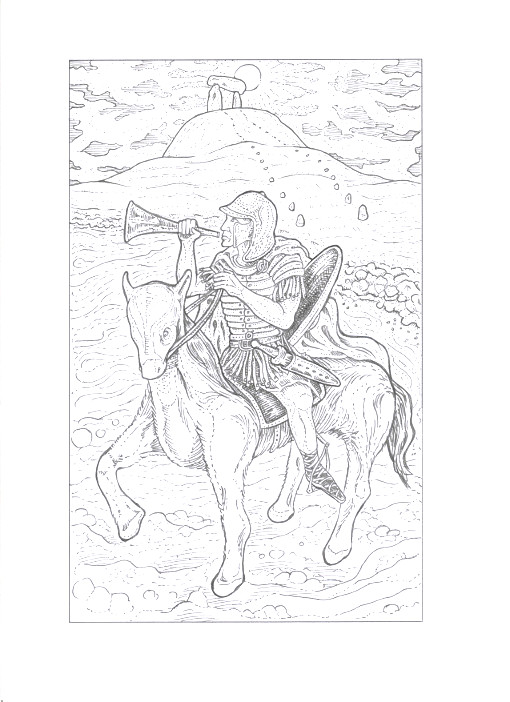
Miscellaneous Fragments
Sounding his war horn, doom-call triumphant,
Vir the Victorious rode in the Sunlight
Swathed in the sanguine blood of his foe-men –
Broken asunder the armies of darkness
The legions of Hell, no match for the hero…
Thanking the gods and lords of fortune
Vir rode onward to new battles,
His heart weary but sword arm restless…
On came the foemen the blood lust upon them
Frenzied as demons fell on the heroes,
Almaric and Ossian brothers in battle,
Shoulder to shoulder facing the onslaught –
A mound heaped about them of gristly corpses…
Juvenilia: The Lay of Vir (in the style of Norse/ Ango Saxon epic poetry…)
Sons of Bailto harken!
The long years pass like leaves blown in the autumn wind,
Dry are the bones of the founding sires of Ilyrion
Iron citadel of the High Kings in Beltain.
Listen to the lay of Acanthion, squire to Vir Na’ Maeglos,
Bard to the fair court of Caer-Eiras,
Renowned seat of beauty, a refuge of learning and song –
Proud fortress of the son of Maeglos, King Celin’s loyal thane.
This vassal, a true son of the Beltoi, of the line of Gerion
Mighty hero of the north, was named Vir the Deliverer
By the druid Arandir, at the bequest of the gods.
Scarcely more than a foundling, in war and hunting Vir proved his valour.
No small part did he play in the dreadful conflict
That had lain waste to the land for countless decades,
When the dread hosts of Usir, like locusts arose from the south.
A curse took the land, borne by dark sorcery –
No corn-eve ripened in the harvest sun,
The life-bequeathing streams and rivers of the field
Became as beds of clay.
Silent were the counsels of Celin, mighty king in Ilyrion
When the warlock-lord had the advantage,
That summoner of demons – scion of fallen Acheron;
Dread shrouds the name of Amthras-Dhu.
Amongst the battle-wains of Beltain, Vir earned renown
When heralded he was as the scion of Maeglos,
For his swift blade, warrior’s prowess and measureless courage
Which hurled him god-like into the throes of battle…
Juvenilia: Sonnet to the Ancient Town
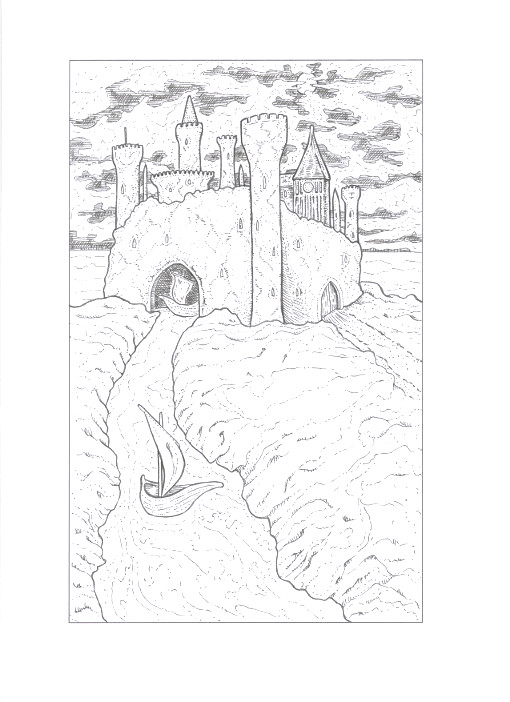
Oh ancient town bestride the restless shore,
Old shadows lingered lastest at thy gates;
Thou hads’t withdrawn unto a darkened veil
And deep in briar thy pleasance lay abate.
Thy tower t’was a sentinel forlorn,
Thy walls did but enshadow former might –
The fleeting breath of Nodens’ silent horn
Had been thy lone companion in the night.
I’d watch thou vanish on the early morn,
And by the brillig, thou’d departed late
And left of thou t’was but a ruin, shorn
Of all its shadows and thy sleeping gate.
And when unto thy ruined port I gaze
I see thy walls confound the evening haze.
Notes.
Pleasance – Medieval pleasure garden.
Nodens – An ancient Celtic god often associated with nature.
Brillig – From Lewis Carol’s Jaberwocky – nonsense word for evening.
Juvenillia: Memento Mei
Will you remember me
in years long gone beneath that ocean of abysmal stars,
washed upon ashen shores –
the faded memory of a second flown?
In tears, creation’s lot without relief
pours out its gradual sleep without remorse.
Juvenilia: The Layman
About the market place at dawn
Where seldom passed a wary ear,
There stood a man amongst the fray –
His hair shone white, his eyes gleamed clear.
His form erect did on the mound
Preside his ministry each day;
His aged lips did gospels speak
His ancient voice the Word did say.
The layman to the crowds did preach,
He questioned them with teaching pure –
He begged the masses to repent,
He fought with ignorance to cure.
Confronted cruelty and despair,
Awoke compassion through his word,
But as crowd did mock and jeer
He to ground and death was hurled.
And the people did repent,
Looked on prophet in the slough –
Cast their faces to their hands,
Sought another truth to slay.
Juvenilia: The Sorcerer
Deep within the forest dim –
in a house that none might find,
dwelt the aged sorcerer,
stooped his body, dark his mind.
Druid of the woodland glades,
master of the wind and sun –
healing hand and wisdom’s voice
these mysteries were his alone.
Came the villagers to his hearth,
counsel gave them and herb lore,
ken of weather, rain and storm –
knew he all their kin of yore.
Years passed, forests became fields,
felled by industry’s dire hand;
villagers replaced by serfs,
age of sinners had arrived.
Within the deepest groves he hid,
nevermore the healing hand
sought the villagers, instead
drove him roughly from their lands.
Witch and Heretic they cried,
tales were woven, words of fear –
deeper hid the sorcerer,
the age of the machine was near.
Lights shone brightly in the town,
juggernauts of steam and power
scarred the sacred downs and groves,
the old world faded like a flower.
Years like autumn leaves declined,
empty was the rustic home –
bereft of magic, wisdom, wit,
departed had the Sorcerer.
Juvenilia: The Poet’s Song
As the poet skipped through mire and fell,
In the land of Bitterness,
He came he to a weathered knoll
And laid him down to rest.
And as in semi-slumber stretched
There came to him a shadow fell,
A nightmare vision of the mind –
A monstrous thrall from deepest Hell.
The bard did struggle with its hold,
He fought it off with conscious mind –
The sins and purge of a thousand years,
Enthroned in goodness sweet and mild.
The dread now fled, the poet rose,
In harmony with earth did walk
And lo! About him he did see
The tranquil land of joyous love.
Haiku-style Poems
Haiku-style Poems
Haiku is a traditional Japanese verse form often conveying wisdom or an allegorical story within a short length.
Travelling
When you go travelling
On the rolling Welsh landscape
Take your umbrella.
Drawing
Drawing is easy
Forms appear from the paper
When pencil is sharp.
Navigation
Lost in the mountains
On narrow lanes in the dark
A map is useful.
Visiting
Visit friends often
Good to value true friendship
First check they are home.
Commitments
Plan your commitments
Use diaries and memos
And sometimes read them.
Driving
Driving in Summer
A pleasant ride into town
Next time check fuel gauge.
Acquaintance
Man waves passing by,
Autumn leaves fading with time
Unsure who he is.
Gift
Birthday party gift
Lovingly wrapped in paper –
Already got one.
Debate
Debate over coffee
On national policies
Ear-muffs are needed.
Writing Haiku
To write haiku verse
Eye and brain focus deeper
Just run out of words.
TV Watching
TV bellows ads
Soaps and drama entrances
Feel quite like a sponge.
Fiction
Read a fiction book
Suspended reality
What was the purpose?
The City
Englynion-style Poems
Englynion (plural of Englyn) are an ancient Welsh verse-form, they are typically composed of any number of short three-line stanzas
The City
Yesterday I went to the City,
Just over the border –
My mind filled with errands.
I passed by indifferent –
Trod the streets lined with commerce,
The Roman facade hardly noticed.
But the signs were still present,
The old Walls stretched proudly –
Forlorn stood the tower of Charles.
Amongst masonry ancient
Lay a still silence –
Past lives soaked in the ruins.
Beneath the facade of the street
Lay old cellars and crypts,
Echoing ages long vanished.
My mind also recalled
Tales out of sync with the fashions –
Of betrayal, strife and conquest.
Came the Legions to fortify Deva,
Built bridges and colonnades noble –
A brief age of concord and learning.
Saxons the next tenants came,
To the dismay of the Welsh (latter Britons),
Driven over the hills into Cambria.
Wars, pestilence, strife soon to follow,
Civil War least among them
Decided the Parliament’s triumph.
Errands complete I head home,
Like the Britons before me –
Past glories and discord mere fragments.
Notes.
The Welsh name for the city of Chester is ‘Caer’ which simply means ‘City’.
During the English Civil War (1642-1646) Charles I is said to have watched the crucial defeat of his forces against the Parliamentary army from a tower which still stands on the City Walls.
Deva – The Roman settlement and fort at Chester.
The Town on Saturday Night
Englynion-style Poems
Englynion (plural of Englyn) are an ancient Welsh verse-form, they are typically composed of any number of short three-line stanzas
The Town on Saturday Night
Bright are the streets to the merry passing
Of youths singing songs of bravado;
The words pour forth harsh and guttural.
The streets usher them to the bars,
Indifferently mixing with litter
The shouts, accusations and curses.
The derelict chapel stands brooding,
Its dignity wasted on darkness –
From an age once in bloom.
The mirage of concord conceals
The long years of discord –
Between two restless nations, two cultures.
The turmoil of ages seems distant,
Past glories of labour and faith –
Dark memories coalesce in the night.
Walking in Cader Idris
Englynion-style Poems
Englynion (plural of Englyn) are an ancient Welsh verse-form, they are typically composed of any number of short three-line stanzas.
Walking in Cader Idris
We started out in the dull morning,
Grey were the clouds over Tal-y-llyn –
Straight seemed the path from Minffordd.
The cŵm rose, shrouded in haze –
A dispassionate giant,
Humbly we strode to its arms.
Ahead stretched meandering paths –
Forces of nature both seeding and fading
Appeared in each boulder and crevice.
Dauntless we clambered through scree-fall
Across rivers and hill-sides,
Like pilgrims with grim resolution.
Untouched and untamed down the ages,
Save by mild grazing cattle,
This landscape seems boundless and timeless.
Hard to recall in the silence of mists,
Urban sounds, whir and frenzy –
Other-worldly it seemed and ethereal.
The eye seems to glimpse apparitions,
Is Llywelyn camped awaiting the Saeson?
Does Pwyll seek his companions?
But the mists become kiosks and signage,
As we leave not with memories –
But with dreams wild and restless.
Notes.
Cader Idris – More properly Cadair Idris (the chair or seat of Idris), part of a mountainous range in North West Wales possibly named after an ancient Welsh hero.
Minffordd – Meaning ‘edge of the road’.
Tal-y-llyn – A ‘llyn’ or lake (‘tal’ signifies a lofty or high location).
Cŵm – In Welsh a valley, but also a geological term for a formation in the shape of a cone with a depression in the centre.
Llywelyn – Llywelyn ap Gruffudd, the last Prince of Wales – killed in a skirmish with English forces in 1282.
Saeson – In Welsh, a derivative of ‘Saxon’ specifically meaning ‘Englishmen’.
Pwyll – A figure from the legendary tales ‘Y Mabinogi’ or ‘The Mabinogion’.
The Spiral
From my window-seat, I see the landscape fly,
forms pass, but who is moving –
the traveller within the shell of motion
or the shifting world beyond?
I occupy an ever-moving stance
down the winding spiral’s arm.
Sometimes, the frontier between
here and the emptiness beyond is blurred.
At times a haze obscures the crystal view
I thought to shelter me, a world serene;
instead the mind is played by scenes
before and after the immediate.
The fleeting netherworld reveals itself
but for the barest breath;
the path is tangled and obscure,
a ghostly shell of the corporeal.
Strange images assail my eyes –
familiar recollections from my past
or future that has yet to be,
these thoughts unwillingly bestir my dreams.
Changes
Today’s normality struts forth indifferently,
A senile pace, an egoistic rite;
surrounded by a haze ethereal
through which we glimpse the purging dawn.
The old familiar paths stretch endlessly,
their surfaces betray a weathered shroud;
the past and present seem inseparable,
but for the barely noticed shift of sky.
Dull sepia darkens to outrageous hue,
the whirr of change becomes a deafening roar –
change is upon us like a savage fiend,
helpless, we clutch mementos from our past.
The Serpent Ouroboros
High above Gaia’s azure veil,
embroidered with the jewels of night –
the serpent Ouroboros strides the sky.
Unseen yet ever wakeful its sojourn
set by the Gods with purposes obscure,
to grind its tail within a hoary maw –
for all eternity, a baleful plight.
The world below maintains a steady pace
of carnage and creation – life’s cycle turns
in self-annihilation, born anew.
War and Peace
Conflicts rage to the clamour of voices –
words purged by action convey senseless murmurs.
The children of Mammon whisper sweet solace,
lost in the cries of despair.
Underground in the shelters they partied –
sometimes fashion required formal attire, other times
casual dress exposed the hidden anterior;
serene, the dancers performed transactions
to the rhythm of automatic fire.
This bright paradise floats calmly on waters
of peace, occasional ripples and cracks
betray something more than skin-deep.
Finis
1.
The end of the story came almost
before its beginning.
I dreg out the final pieces that make the story –
I find a few scattered fragments,
the rest is history.
2.
I watch the burial of old friends,
the silent mourning
through which the tears flow.
I almost sense you are still there,
my senses lie.
3.
At the graveside the mourning has stopped,
the mourners have healed themselves.
I stand upright, ready to leave,
ready for baptism by the King of Thieves –
memories persist.
4.
One night, I almost imagine a world
echoing dreams.
I prefer this one, though insubstantial
and spectral. I would rather the cold glare
of indifference.
5.
We stand forever at the brink of nothing,
even the mists seem more attuned.
Our voices like moth-breath, our minds
vainly piercing the shadows,
barely meeting.
6.
I sense a part of me is missing,
instead there is a glow within me.
A part, the tiniest of parts of me
belongs to you.
And in my heart, you let slip, a part
the tiniest of parts.
Celtic music
The living heartbeat of a woodland muse –
As one, my heart pounds to the rhythm
Of celestial chords, unsung by heaven;
In mortal’s grasp, the gods themselves reveal
Incredulous wonder at the seed of life,
Its strength and still sublimity –
Life’s cycle turns, an endless rite.
Utopia
Reading about Utopia,
that edifice of Moore and Swift –
I wonder how they metered out
such certainties.
I’m sure that if I had the chance,
I’d conjure up Utopia
not in the pages of a book
but here on EARTH.
Art is a fallacy, were we
to look closely at the painting,
or deep enough
into some gothic pile,
we’d find pure logic, or at least –
how it appeared in the craftsman’s brain.
Life also, the tapestry of chance –
consider well the myriad fate of men,
some silently toward a baleful night
descend, under heaven’s watchful glare;
others, a long and placid vista watch
their world rotate upon its ambient course;
mummers and clowns perform life’s travesties –
a sublime mirror to reality.
A siren beckons us to promised shores,
more beguiling than the gorgon’s stare,
or twinkling diamonds in the veil of night –
our saviour and our bane, Utopia.
Dawn
Light sparkles through canopies –
emeralds dulled by
the rain’s moistening hand
now a kaleidoscope of autumnal hues
luminous in an azure sky.
I glance at the fleeting forest creatures,
birds dart amid the confines of
leafy boughs;
stirred by the restless breeze
ground dwellers traverse dewy paths.
Hen Wlad Fy Nhadau | Old Land Of My Fathers (The Welsh National Anthem). By Evan James. Translated by Paul Catherall
Hen Wlad Fy Nhadau | Old Land Of My Fathers (The Welsh National Anthem). By Evan James. Translated by Paul Catherall
1.
The old land of my fathers is dear unto me,
Land of poets and singers, great men of renown;
Her warriors brave and patriots great,
For Freedom they lost their blood.
My Country! My Country! I’m devoted to my Country;
While the sea like a wall protects the dear land,
May the old language live evermore!
2.
Old Wales, land of mountains – paradise of the bards,
Each valley, each clifftop to me are fair;
Through love of my country, each restless brook
Fills me with wonder and joy.
My Country! My Country! I’m devoted to my Country;
While the sea like a wall protects the dear land,
May the old language live evermore!
3.
Though enemies trampled our land under-foot,
The old tongue of the Welsh thrives as ever;
The traitor’s dread hand failed to silence our muse,
Like the melodious harp of our nation.
My Country! My Country! I’m devoted to my Country;
While the sea like a wall protects the dear land,
May the old language live evermore!
Tendon
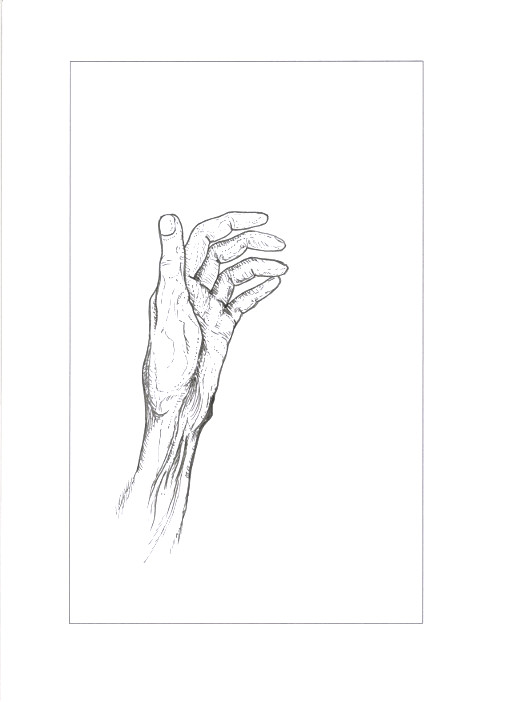
The tendon in my hand
That first incurred my woes,
Sits patiently, unaware of its transgressions;
I felt anger at my hand,
Now only pity, how was it to know
The ineptitude of modern man?
The Pretentious Ones
1.
Dry and crackled, I wade through words like chaff.
How can the mind’s eye truly imagine
memories of the fallen,
or empathize with words
the artistry of forgotten thoughts?
2.
Searching endlessly for the point
I clutch vainly for the parts of the jigsaw –
self-congratulate my analysis,
the image sits comfortably on my retina
the puzzle fits, the parts are complete.
3.
But what was that? A nuance, an image?
I beat the pieces back in, but it’s the old dilemma –
the parts of the story were blurred from the start
is this my jigsaw or His?
4.
Once I could see the purity of words,
shameless without the alacrity of sense;
I yet cling to the Eden of rhythm
lulling me to sleep like a child –
mirror to reality, or harmony of deceit?
Stalking Grounds
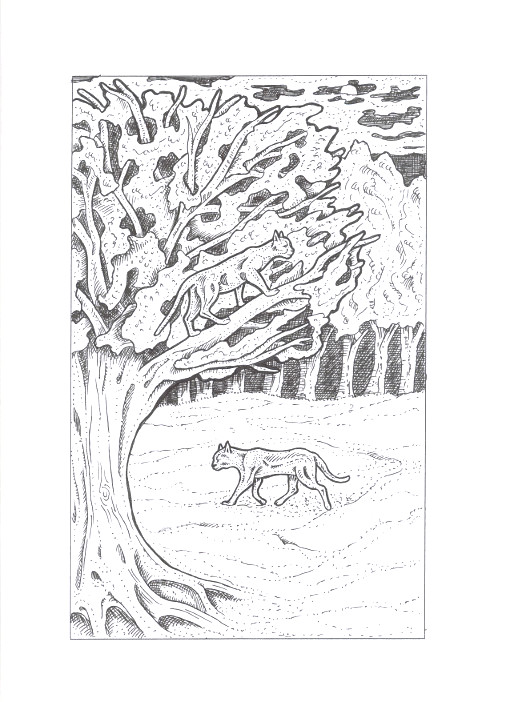
The grasses are actually lawns
not blowing in the wind like rushes,
the cats sense their dismay:
tawny hue and jet, one minute sporting –
each with the articulate delineation of
the toy maker;
the next, alighting with a precarious leap,
gnarled branches – hidden by the splayed leaves
of a forest canopy.
Darkness has fallen,
and the moist earth of the forest humus
is replete with victims.
The cats glance at their escaped pray,
their stealth has been inbred out of them.
Pathetic Fallacy
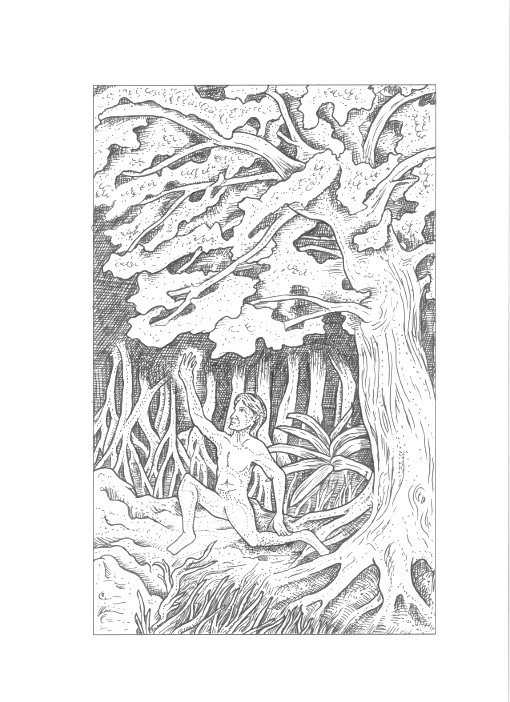
Dry grasses have weathered;
beneath the rain’s autumn knell
mildew creeps under rotting wood.
Over the darkening grass, I imagine
the dank abode of man, fixed
to the flesh, married like a snail
with the skin.
Clods of turf, distant cries
from the primeval soil,
root him to the scorched earth.
He cannot see nor feel –
he is a prisoner, subject to
five indelible wits.
Above him, the heavens maintain
a dispassionate vigil;
the moon is its slave,
straddling the unquiet night.
His body hangs in reverence –
an oblation to mysteries;
I see him imitate the ethereal stars,
his smile is perfection.
Notes.
Pathetic Fallacy – a term used by the Victorian art critic John Ruskin (1819-1900) to describe the elevated state of individuals when emotionally affected by natural landscapes.
Limbo
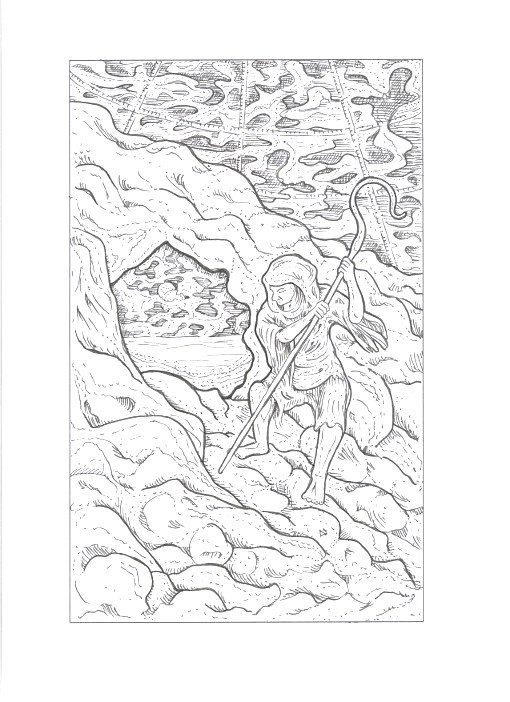
This is limbo, the ethereal, the acute;
a malady oppressed my mind –
nowhere to turn, I gaze full fathom
into oblivion’s door.
An inviting haze almost touches
but hangs back at the moment of conception.
I peer inside,
what tumultuous schisms await
in the event-horizon of experience –
bathos or epitome, who can discern?
The Visage of Death
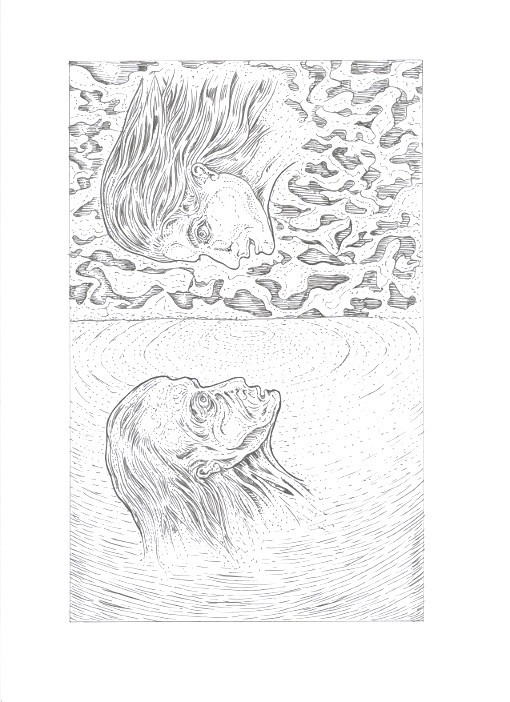
I have seen the visage of death –
saw it before through the face of others;
now, in the mirror’s deceit
a fleshless arm extends,
inviting me beyond the dark abyss.
I glimpse forbidden shores –
Lethe’s waters calm my restlessness,
evoking sublime dreams.
Almost touching, the vision fades –
this starry mystery recedes a little more.
Forefathers
Where are the citizens, the bronze miners?
Whitewashed houses murmur their retributions –
nothing has changed,
their spirits are still here;
defined and bent with prohibitions –
unearthed among the back roots
that touch my heart endlessly,
burning like an ochre flame.
In my closet lies a dark ledger –
prosaic and bottomless;
its brooding tricephalous
frowns on my trinity,
fatherly and skeletal – a sure promise,
tense cohabitation, flayed and cornerless,
foreign in breed and cult.
Praying for its cessation
I offer up memories –
stamped quite suddenly into my raw hide.
Beside the houses are gnarled roots
spluttering their acephalous cries,
dark accusations are their milk;
their tears fall to earth, an anvil sky
belches forth its poisons. In the ground,
black saplings
emerge struggling in ashen soils.
Shall I refuse this sanctuary,
its dark waters?
Looming ancestral skies resign my blood.
Looking Ahead
It was the year ‘Almost-Perfection’,
man had scaled dizzy heights –
conquered Mars, conquered misery.
He could smile at it all;
above all, he could look back with pride
on a lifetime’s achievement,
with only one hitch –
a problem central to his condition.
It made him weep,
made him shudder inside, where lay
his primitive self.
He could not conquer himself.
The answer presented itself as a matter of logic –
wielding the butcher’s mattock – aimed at this general
condition, he would eradicate forever
this dirty great mark, this badge of mystery,
the affliction of Adam.
To be without that serpent
would decay soul, mind, then both – not living,
perhaps not dead, only a shell which into
entropy,
would last out
its final, laboured end.
Poem for a Poet
Were it not so sure
of itself,
the poem would be
like the poet –
wavering over a phonetic confluence,
muttering idly
over an image. Reluctantly
shouting the dark
down into submission;
calling to a hopeless array
of statue-like muses.
The poem is our consciousness
come alive,
reflections of the architect’s dream,
or the proud
moments
when the heart leaps.
Origins 2
Darkness.
Blackness.
Emptiness.
Only the mind of God,
Within and without itself.
Sometime without time, without conception of place –
Without semblance of shape.
A warmth in the soul of Man,
Barely discernible, hardly there at all.
His mind –
Growing, adapting, evolving;
A flower opening for the first time, a seed bursting.
From the darkness, this imperceptible glow
Becomes a sea of light.
Cain
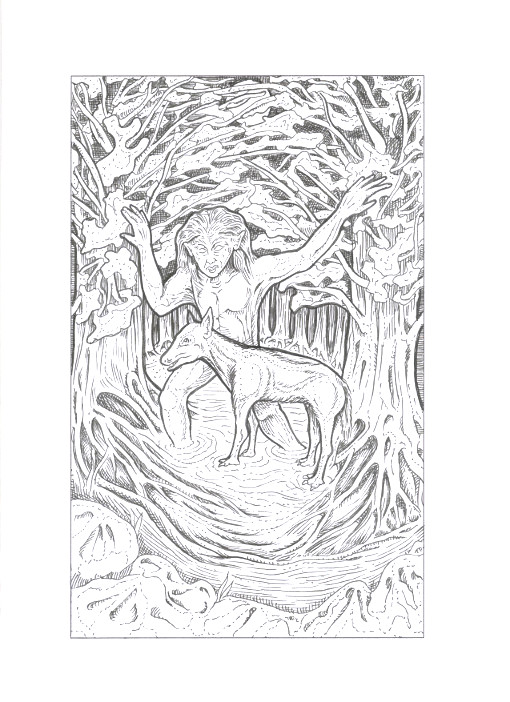
1.
This is the sea tide of harmonies,
a blind dog leads the seeing to standing pools –
somewhere over the horizon of mists
the lichen monstrosity
flayed for monstrous crimes
against inhumanity, teeters off the brink
of its uncanny world.
The resigned faces
of the slaughter men –
their sweat is the stench of death.
An opaque kiss
veiling the dark under a pallor of smiles.2.
Ochre flames are caged
behind walls of iron. Hungry for meat
this carnivorous wight soldiers on – mindless,
yet possessing the intoxicant garments
of destruction;
merciless pain, agonies that tear out the entrail-
shattered heart and the wisdom of blood,
fresh from the forest-wilderness
romantics could not touch.
Hammers beat over the souls of the living,
what was once living is the brooding corpse.
Scapegoat
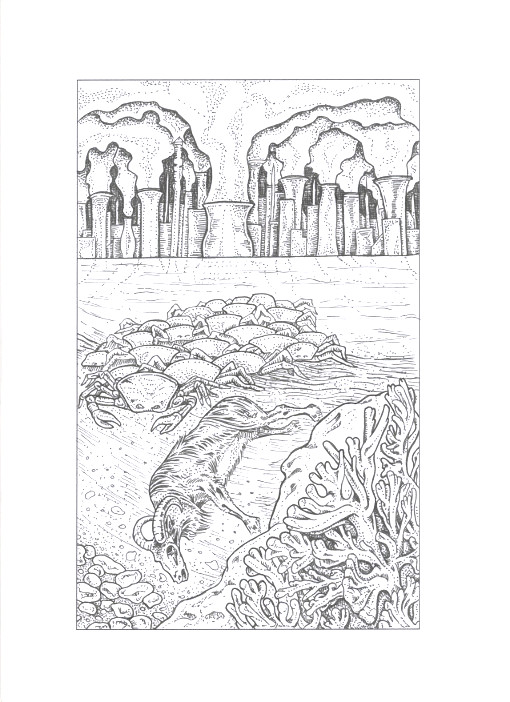
Under the sky, clouds are blackening;
casting pale shadows
these anvils spit their grievances
at a heaving seabed –
full of coral, a desert pasture
and the alluvial night hunters
that gesticulate a reason beyond walls of ice.
Over the stony horizon, obscured by mists
and a sea abeyance
I tread my pilgrimage, a fabulous Salem
paved with blood covenants lies ahead.
The pass goes on –
will it go on for ever? This smiling litany
blazoned with graces like a nosferatu
just out of the cellar.
I have anchored home, over the fire-pots –
a reception of faceless men
squander my juices on a desert altar;
the condemned goat,
my god-given ally
bleaches beneath a passive sun.
Plenilune
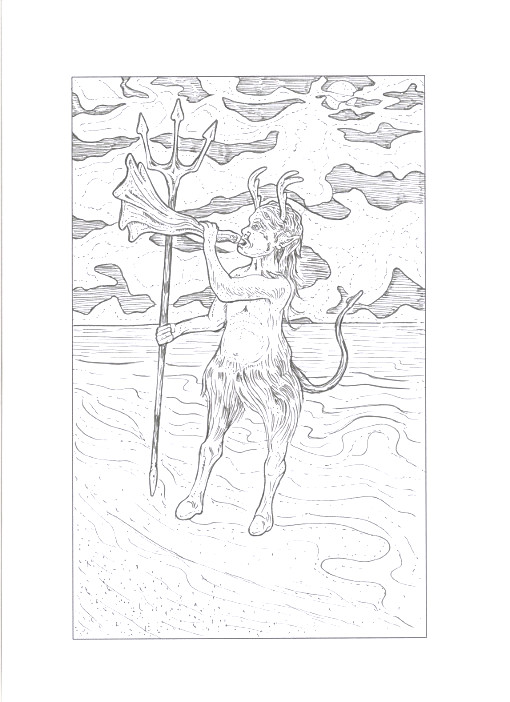
Listen to the night labours –
to the opaque reality, the shell
in which the sea heaves,
bound to the call of the hunt.
Poem
Your horizon –
the substanceless cauldron of night.
Swirling impurities –
that like the dawn blanket worthiness.
The irresolute shoreline –
breaking its back over a sea of blood.
This is the pilgrim’s aceldama,
avatar to the five senses.
Images
A bugle calls its dead notes on the wind,
frenzied tartars
point their horse-tailed wands at calm observers.
From behind the misty hills, pitted and starless
a sea horde invades the land.
Desert pastures
cultivated and arable swarm with coral,
on their alluvial beaches
reluctant vermin depart a sinking hulk.
Chaos
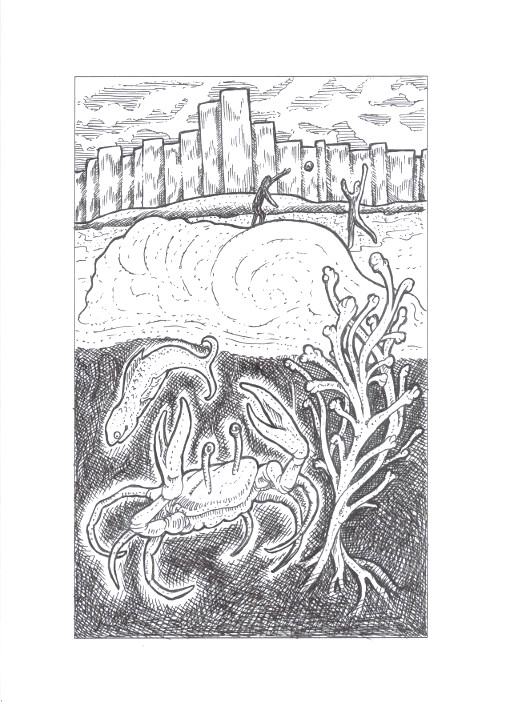
Ultimates are everything, they define gravity;
Clockwork nature menstruates its aeons,
Heaving seas
Subaqueate desert pastures,
On the ocean bed
Blind hunters track their prey.Oh ashen statue,
Under your walnut skin
Synthetic parasites tap the blood.
Spectacles are useless, they distort vision –
I am a cyborg, I have no time for visions,
Electrodes dance in my brain.
A bloodbath lies on my right –
On my left and above my consent,
A dark singularity
Inhuman as Satan spits out my bones.
From the Eggs to the Apples (ab ovo usque ad mala)
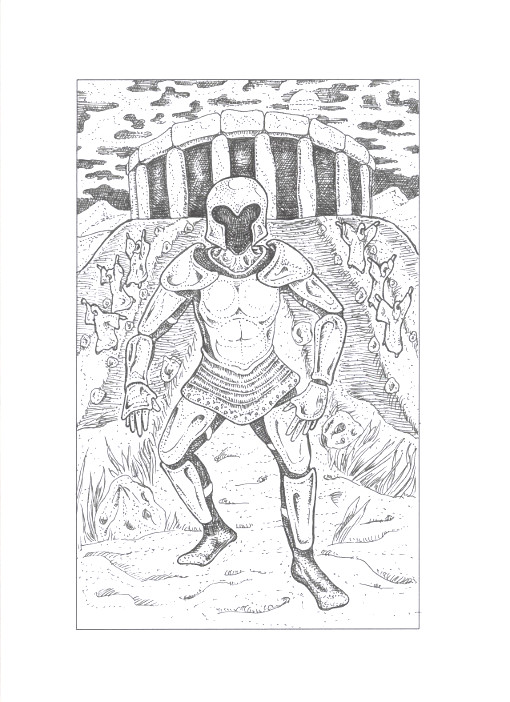
Out of the dawn’s shadow
the consciousness that does not think –
opens its heart and soul,
releasing waves of genius over a dry path.An acephalous man attired in blunt armour
presides over these ablutions,
the weight of the gods is his burden –
a divine rod reluctantly wielded.
The fleeting zephyr and restless waters
are reluctant yet nourishing guardians –
bystanders in the rows,
sometimes playing an Herodian part.
Fronds nod attentively to the sound of ritual –
cloud, sky and grass seem to acquiesce;
these sentinels hang like a shroud,
calming the waiting suppliant.
The blade of compassion is whetted
in the innocent’s wonder –
this covenant is an indenture,
an indelible mark, borne of ages.
Mummers sow near an altar
foretelling the harvest nemesis;
from the seeds of this rite
black saplings emerge in the soil.
Notes.
Ab ovo usque ad mala is Latin, translating ‘from the eggs to the apples’, meaning from the first to last course in an ancient Roman banquet.
Acephalous – Lacking a head.
Herod – A king of Judea from Biblical times.
Mummers – Mediaeval entertainers who performed mystery plays.
Cave
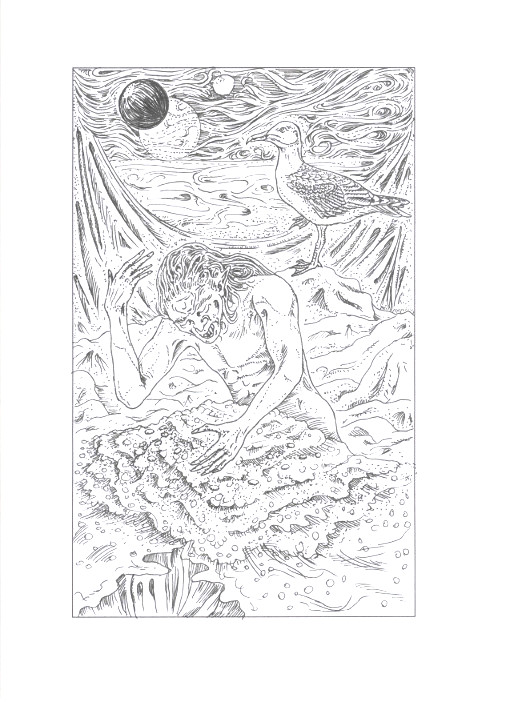
Deep, deep underground –
the hoary troll
counts moonstones with a flickering pierce,
casting pale shadows in the glow
of incandescent suns –
slashing the dark with hungry
cadaverous teeth.
A grinning seabird
perched and waiting on a rubble pile
surveys the scene. In his eye
a nebulous sea tolls the hour.
Now, our fiendish companion
hammers out contractible alloys;
his beating sledge
sparks off the anvil ground. A searing rod
emerges sparkling from stagnant
fountain depths. Overhead,
a starless firmament applauds.
Casting pale favours over its abeyance edge,
an ivory smile
gaping at this abysmal slave
petrifies its seasons.
